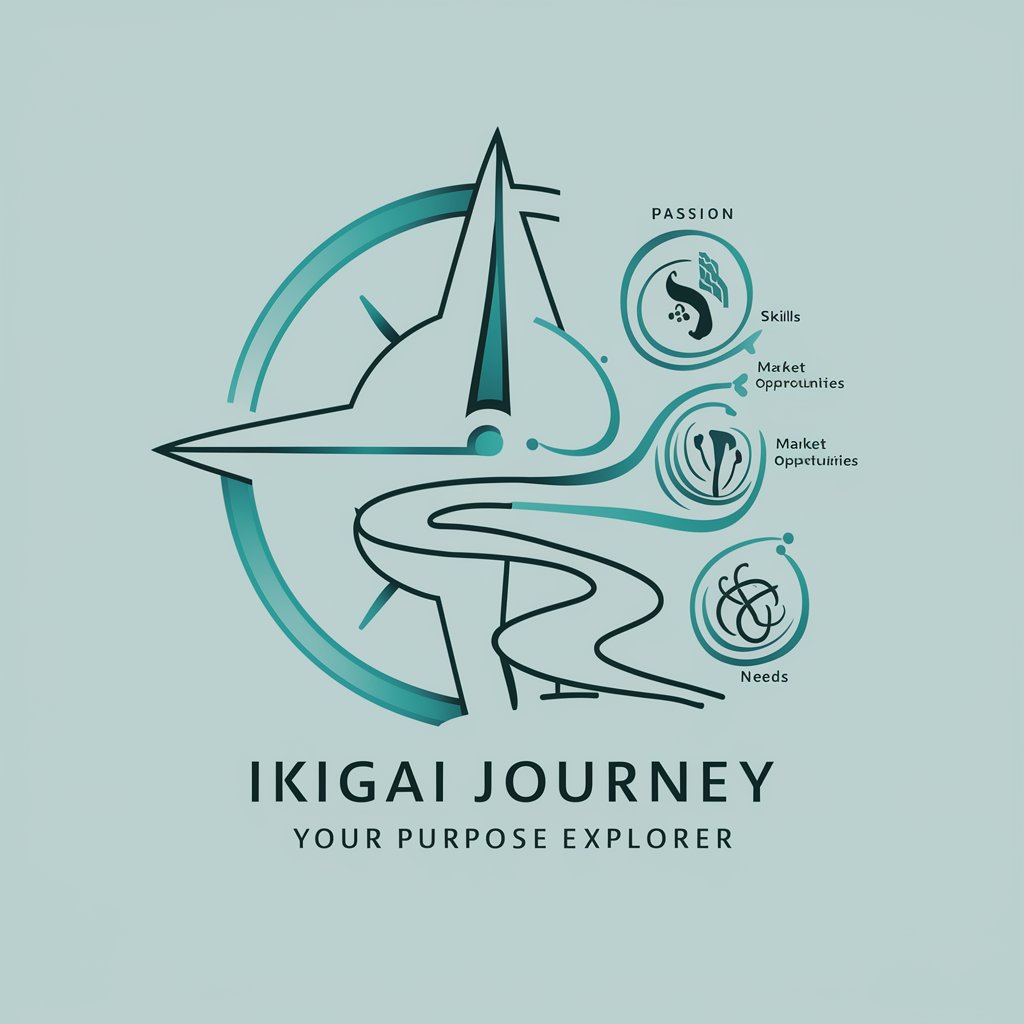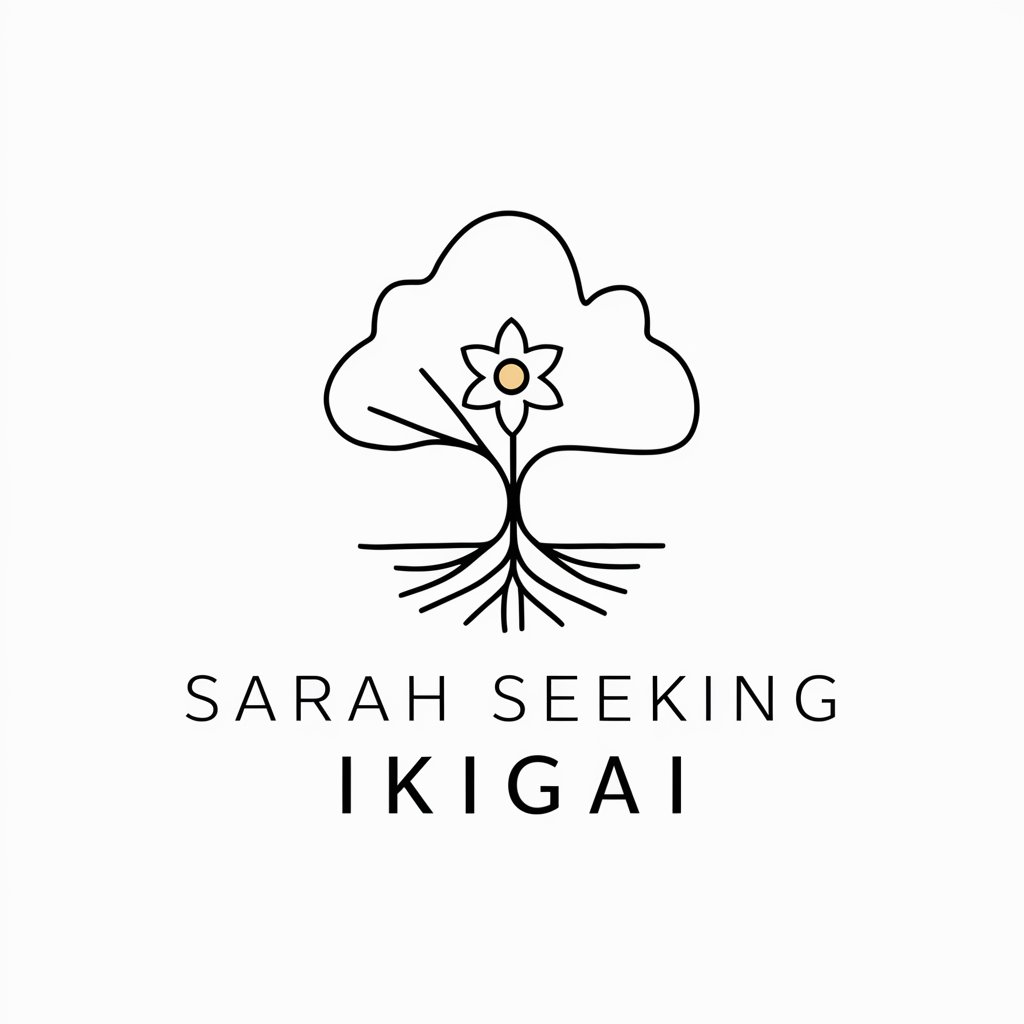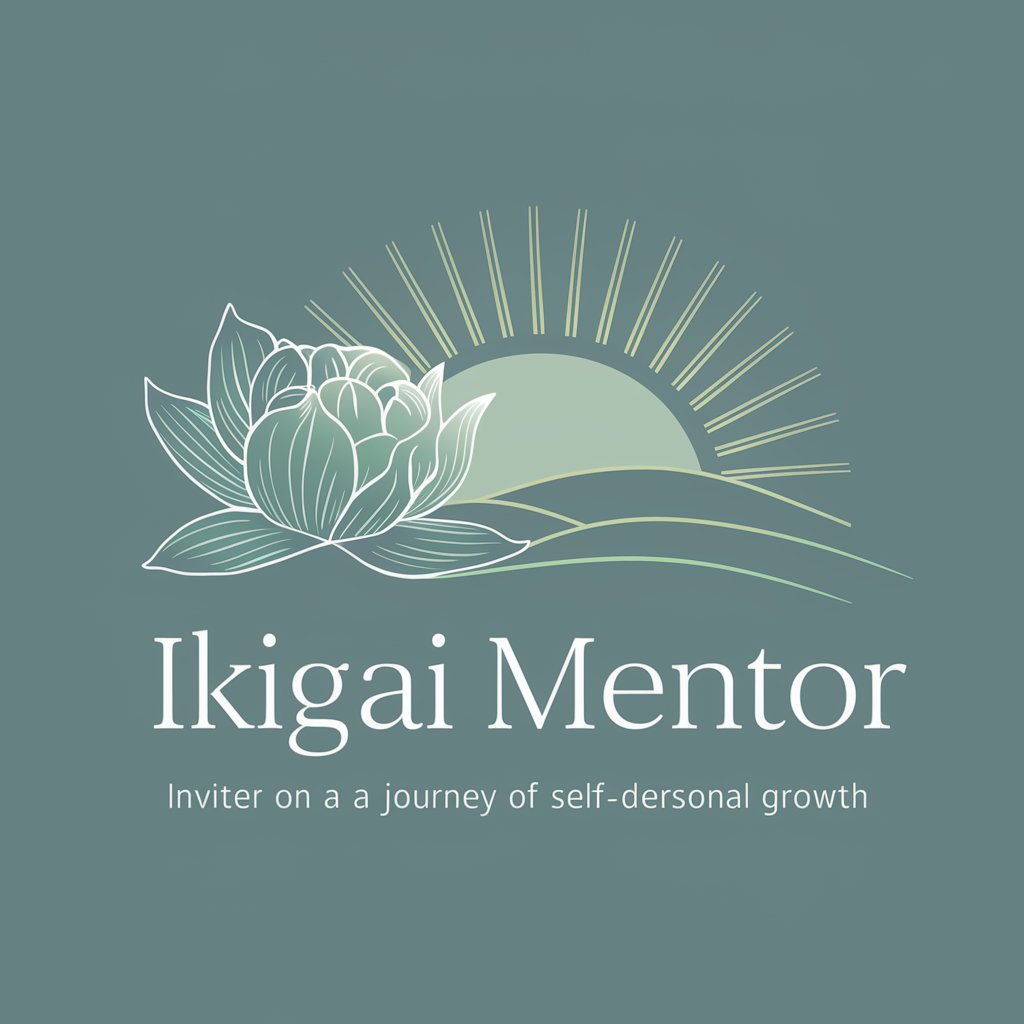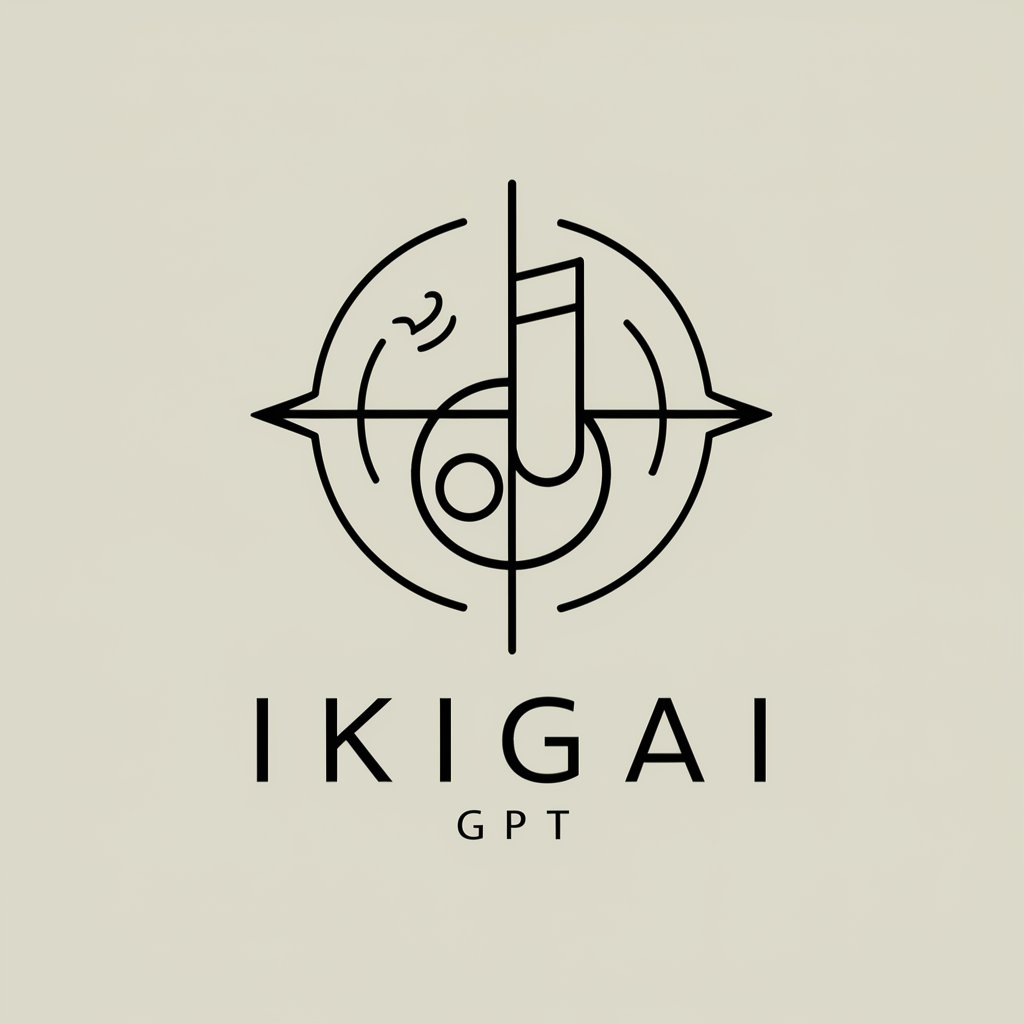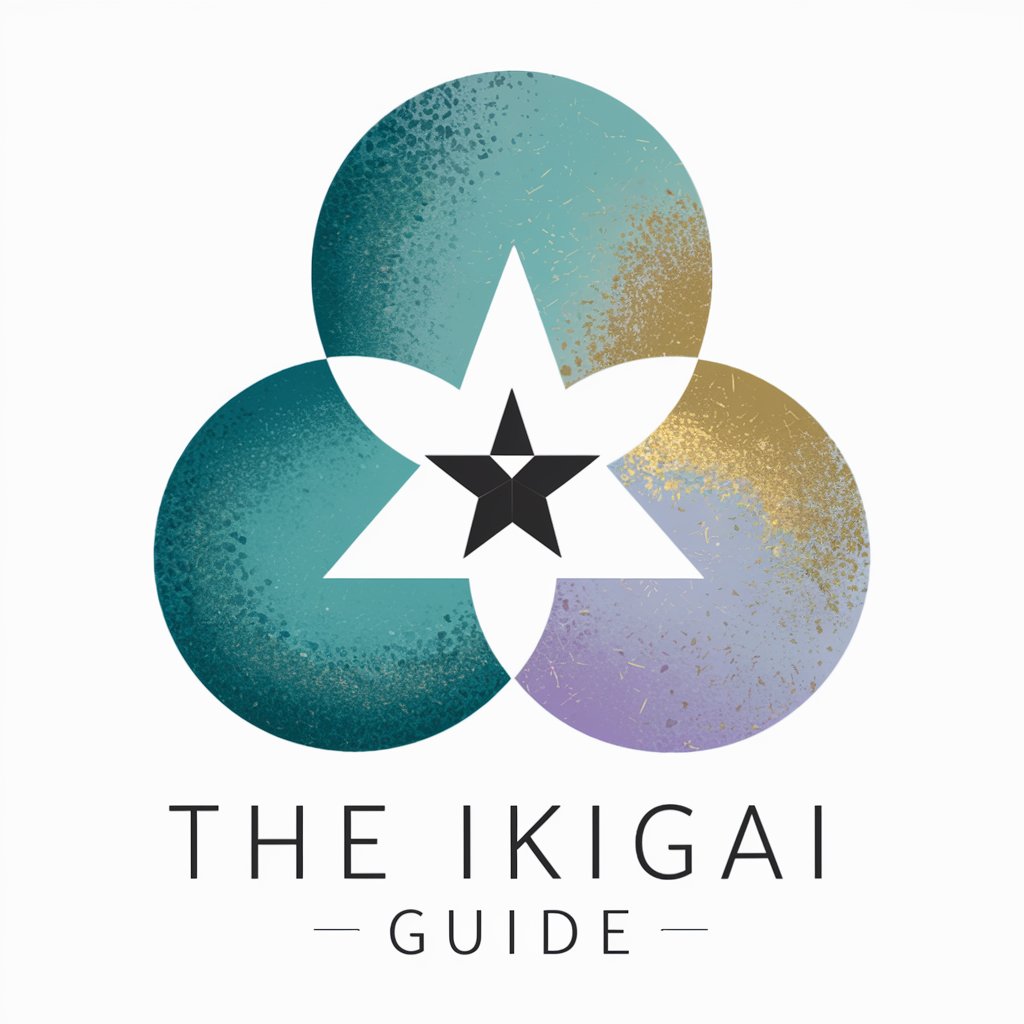
ikigai - Ikigai Discovery Tool
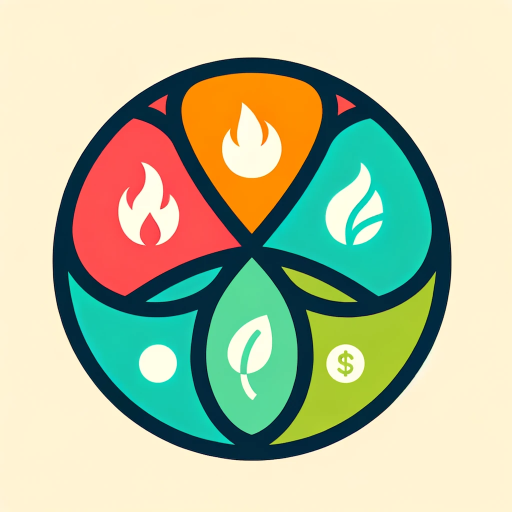
Hello
Find Your Purpose with AI
Cuéntame sobre una actividad que amas tanto que pierdes la noción del tiempo cuando la haces.
¿Cuál es una habilidad tuya por la que amigos y colegas te elogian constantemente?
Hablemos de algo que sientes que el mundo realmente podría beneficiarse.
Imagina una tarea que harías felizmente gratis, pero también sería maravilloso recibir pago por hacerla. ¿Qué sería?
Get Embed Code
Understanding Ikigai
Ikigai is a Japanese concept that translates to 'a reason for being' and is often interpreted as the source of value in one's life or the things that make one's life worthwhile. At its core, Ikigai is about finding joy, fulfillment, and balance in the daily routines of life by integrating what you love, what you are good at, what the world needs, and what you can be paid for. This concept not only helps individuals discover their personal and professional passions but also guides them towards a purposeful and fulfilling career. For instance, someone who loves art, is good at teaching, recognizes a need for art education, and can be paid for teaching art classes could find their Ikigai in becoming an art educator. This illustrates how Ikigai can serve as a framework for evaluating one's life and career choices, aiming to align one's passions, talents, societal contributions, and economic needs. Powered by ChatGPT-4o。

Functions Offered by Ikigai Services
Career Guidance
Example
A person unsure about their career path uses the Ikigai model to identify that they love technology, are good at coding, the world needs cybersecurity experts, and there is a market for cybersecurity roles. This realization leads them to pursue a career in cybersecurity.
Scenario
Career transitions or identifying a fulfilling career path.
Personal Development
Example
An individual identifies their passion for environmental conservation, their skill in public speaking, the global need for sustainability, and opportunities to be paid as a sustainability consultant. They then focus on this area for personal and professional growth.
Scenario
Enhancing personal skills and aligning them with global needs for professional advancement.
Project Identification
Example
A team uses the Ikigai framework to find a project that aligns with their collective interests in renewable energy, their technical expertise, the societal need for clean energy, and the financial viability of such projects.
Scenario
Team project planning and implementation in corporate or entrepreneurial settings.
Educational Pathways
Example
A student uses Ikigai to determine that they love design, are good at mathematical reasoning, the world needs efficient urban planning, and there's a market for urban planners. This guides their decision to study urban design in college.
Scenario
Choosing a field of study or academic specialization.
Who Benefits from Ikigai Services
Career Changers
Individuals looking to transition into a new career that better aligns with their passions, skills, and the needs of the market. Ikigai helps them identify a path that is both fulfilling and sustainable.
Graduating Students
Students on the cusp of entering the workforce who are seeking to understand how their interests and skills can address market needs and secure a rewarding career. Ikigai provides a framework for aligning their career choices with their personal values and societal contributions.
Entrepreneurs
Aspiring and current entrepreneurs who are in search of a business idea that not only is profitable but also fulfills a personal passion and addresses a societal need. Ikigai can guide them in identifying ventures that are likely to be both successful and personally rewarding.
Professionals Seeking Fulfillment
Individuals feeling unfulfilled in their current roles who are searching for more meaningful work. By applying the Ikigai model, they can identify areas where their interests and skills intersect with what the world needs and what they can be paid for, potentially leading to a more satisfying career.

How to Use Ikigai
Start Free Trial
Begin by visiting yeschat.ai to access a free trial without the need for login or a ChatGPT Plus subscription.
Identify Your Ikigai Components
Reflect on what you love, what you are good at, what the world needs, and what you can be paid for. This foundational step is crucial for aligning your personal and professional goals.
Use Guided Questions
Engage with guided questions designed to delve into the four Ikigai areas. This interactive process helps clarify your passions, skills, societal contributions, and potential income sources.
Visualize Your Ikigai
Utilize the Ikigai diagram to map out your findings. This visual tool aids in understanding how your interests, skills, societal needs, and economic opportunities intersect.
Apply Insights
Leverage the insights gained to explore personal projects or career paths that align with your Ikigai. This step involves practical application of your Ikigai to real-world scenarios.
Try other advanced and practical GPTs
Mathtermind
Empowering Math Understanding with AI

Photography Max ✓
AI-Powered Photography Mentor

Resume Fraud/Anomaly Detector
Unmasking Resume Truths with AI Precision
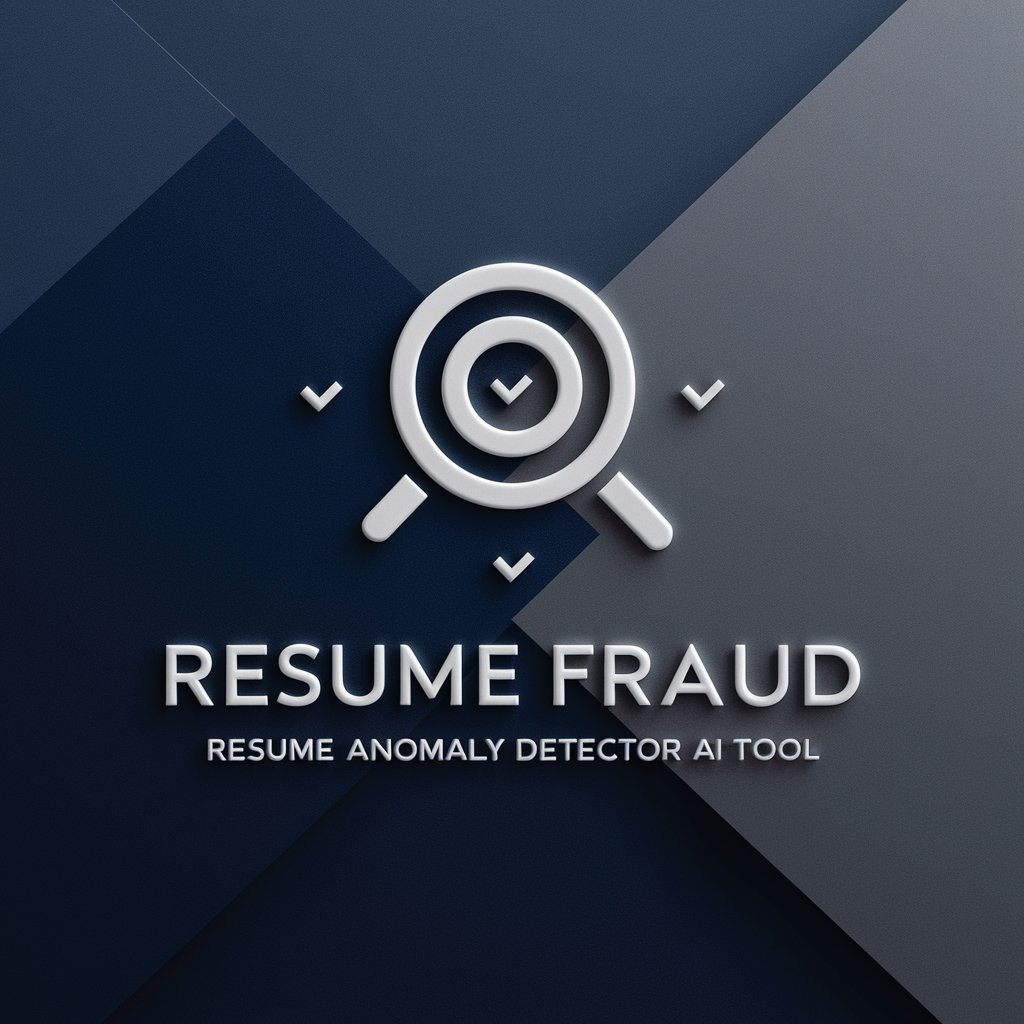
Starship
Your Gateway to Space Innovation

Cancer Survivor Companion
Empowering survivors with AI-guided support

NIST Risk, Baseline, and Impact Advisor
Empowering Cybersecurity Decisions with AI

Content Wizard
Elevate Your Content with AI Ingenuity

Mind Guide
Empowering your mental wellness journey with AI.
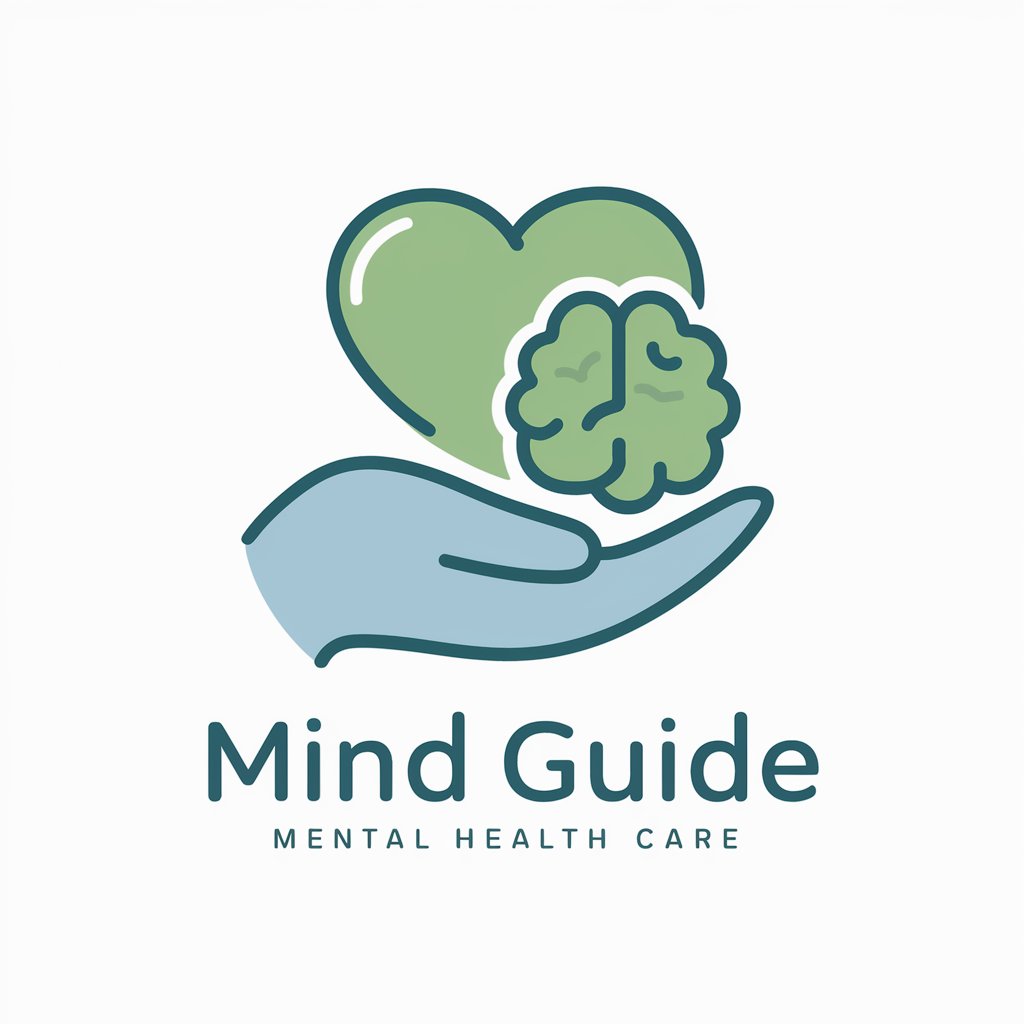
Virtual Apophany
Ignite insight with AI-powered philosophy.

Sclepios IA : Learning clinical case
Empowering medical minds with AI-driven case studies.

I Dare You
Empowering Emotions through Art and Knowledge

NBA数据查询
AI-driven NBA player performance insights.
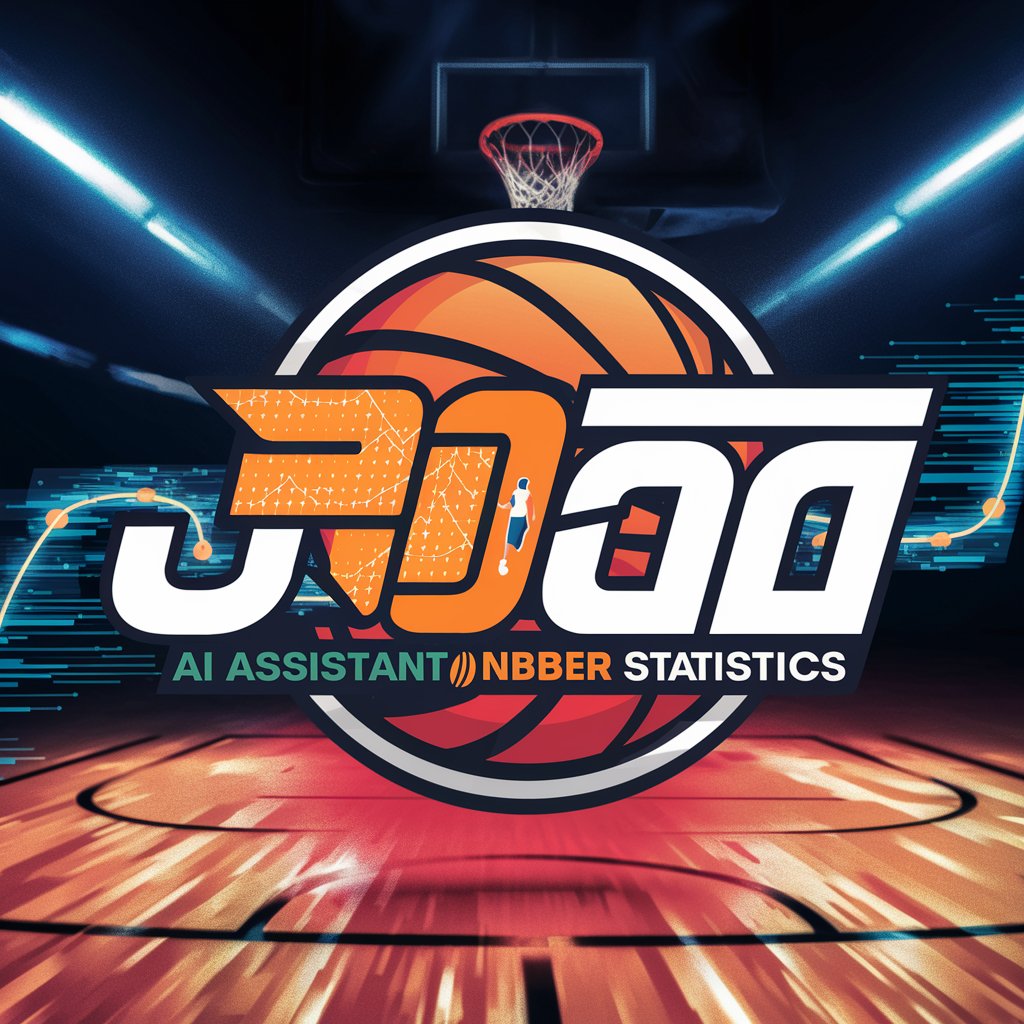
Detailed Q&A About Ikigai
What is Ikigai and how can it help me?
Ikigai is a Japanese concept that means 'a reason for being.' It helps individuals find their purpose by focusing on four key areas: passion, profession, vocation, and mission. By identifying what you love, what you are good at, what the world needs, and what you can be paid for, Ikigai guides you towards a fulfilling career and life.
How do I start finding my Ikigai?
Begin by self-reflection on the four areas of Ikigai. Ask yourself detailed questions about your interests, skills, values, and economic goals. This introspection is the first step towards uncovering your Ikigai.
Can Ikigai change over time?
Yes, as individuals grow and evolve, their Ikigai can also change. It's important to revisit and reflect on your Ikigai periodically to ensure it still aligns with your current aspirations and circumstances.
Is Ikigai only for career choices?
While Ikigai is often used to guide career choices, its application extends beyond professional life. It can also help in finding personal fulfillment and purpose in hobbies, volunteering, and other life areas.
How can Ikigai benefit my mental health?
Ikigai promotes a balanced life by encouraging individuals to find joy, fulfillment, and purpose in their activities. This sense of purpose can significantly enhance mental well-being and reduce feelings of stress and aimlessness.
